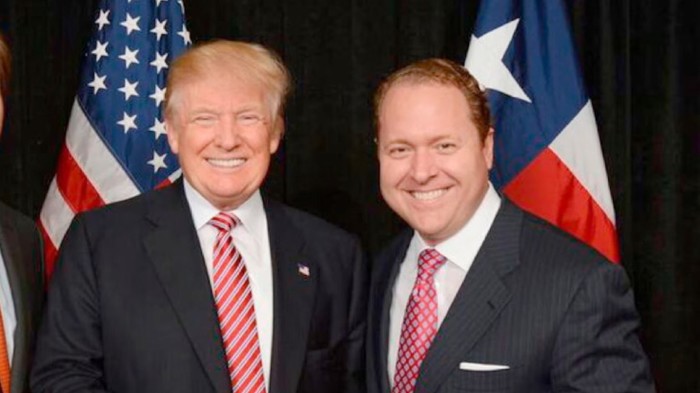The Democratic Republic of Congo is currently engaged in discussions with a Texan businessman closely associated with former President Donald Trump, with the aim of incorporating a notorious source of conflict minerals into US-backed peace initiatives for the region.
Gentry Beach, who serves as the chair of investment firm America First Global and previously held the position of finance co-chair for Trump’s 2016 campaign, is part of a consortium that is in negotiations for the rights to the Rubaya coltan mine. Situated outside the city of Goma in eastern DR Congo, the Rubaya mine has long been at the epicenter of the trade in illicitly sourced coltan, which has been used to fund one of Africa’s most enduring and deadly conflicts.
The mine, which is responsible for about half of DR Congo’s coltan production, was seized by Rwandan-backed M23 rebels earlier this year. These rebels have since been overseeing and profiting from the mine’s output. Geologists view Rubaya as a highly promising source of tantalum and niobium, both essential minerals in the electronics industry.
Stakeholders involved in the negotiations are optimistic that if an agreement is reached, the mine could serve as a key component of a broader US investment strategy supporting the Trump administration’s unconventional approach to resolving the conflict between DR Congo, Rwanda, and various proxy militias. By offering the prospect of substantial US investments in mining and infrastructure, Washington hopes to incentivize the warring factions to cease hostilities, reflecting Trump’s characteristic transactional approach to diplomacy.
Rubaya was among the assets highlighted by DR Congo President Felix Tshisekedi when he initially approached Washington in February, offering mining rights in exchange for assistance in quelling the rebellion in the country’s eastern region. The US and DR Congo are both eager for any resulting agreements to reduce China’s dominant influence in the area, given DR Congo’s status as a leading global producer of cobalt, gold, copper, coltan, tin, and diamonds.
Gentry Beach, a former hedge fund manager with prior experience in DR Congo, has been involved in mining ventures in the region since 2004. Although he shares a longstanding friendship with Donald Trump Jr., the president’s son is not engaged in Beach’s business dealings. America First Global, in partnership with Swiss commodities group Mercuria, seeks to develop the Rubaya mine in collaboration with Congolese state miner Sakima. The project could necessitate over $500 million in investments.
The White House has not issued a formal response to these developments. While the outlook for peace in the region remains uncertain, recent endorsements of a draft agreement by representatives from DR Congo and Rwanda offer a glimmer of hope. The US International Development Finance Corporation, established by Trump to facilitate private sector development lending, may extend support for American investments in strategic minerals as part of a separate agreement with DR Congo.
Despite its grim reputation as a site linked to conflict and exploitation, Rubaya could potentially undergo transformation under new ownership. Plans are underway to legalize the export of coltan mined at the site, with some of the mineral being processed in Rwanda for export. A consortium involving Mercuria, America First Global, and Rwandan state investor Ngali Holdings aims to construct a smelter in Kigali for this purpose.
While some experts remain skeptical about the feasibility of these initiatives, proponents argue that the envisioned deal represents a step towards fostering economic development and reconciliation in the region. The ultimate goal is to leverage business opportunities to bridge longstanding divides and pave the way for lasting peace.
In conclusion, the ongoing discussions surrounding the Rubaya coltan mine exemplify the complex interplay between economic interests, global politics, and conflict resolution efforts in the Democratic Republic of Congo. By harnessing the potential of mineral resources to promote stability and prosperity, stakeholders are striving to chart a new course for the region’s future.








